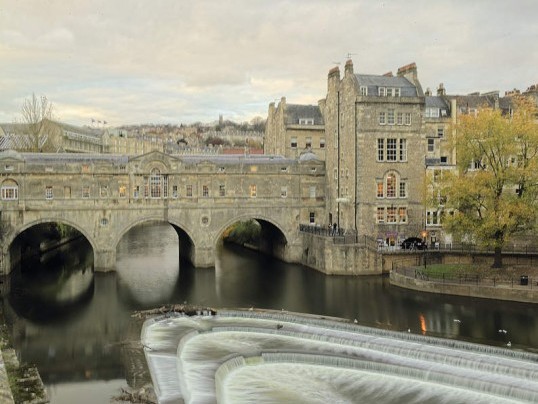
As the popularity of the DSLR grows and grows, you might want to start thinking about getting creative with your photography and improving your shots.
Post-production editing in Photoshop can be a fun way to add life to your images, and there's some pretty cool stuff you can do, too.
Whether you're new to the editing game or an old hand, we present 10 of the best Photoshop tutorials to create something special, courtesy of our colleagues on PhotoRadar.com
1. Create brilliant HDR images in Photoshop
How to use Photoshop to fix misaligned shots, colour temperature mismatch, avoid halos and surreal images and correct movement artefacts.
Read Create brilliant HDR images in Photoshop
2. 10 Essential RAW fixes
Get daily insight, inspiration and deals in your inbox
Sign up for breaking news, reviews, opinion, top tech deals, and more.
We all know that shooting in RAW, as opposed to a compressed file format like JPEG, is the way to gaining maximum control over your photography. But what should you do with your photos once you've taken them? Here are 10 fixes that'll make you glad you switched to RAW.
3. Recreate the Top Gear effect in Photoshop
To get your car looking like it's straight from Top Gear, all you need to do is make a few tweaks, selections and use Adjustment Layers in Photoshop. Video sequences in the programme itself are filmed using glass gradient filters over the camera lens, giving a polarising filter effect. This effect is great for making car bodywork really sparkle and gleam. This tutorial will show you how to achieve the same effect.
Watch Recreate the Top Gear effect in Photoshop
4. Create a joiner photo from 16 exposures in Photoshop
Photo-joiners are montages made up of several different pictures. In film days, photographers would simply stick prints together but today this can be achieved in Photoshop to great effect.
Watch Create a joiner photo from 16 exposures in Photoshop
5. Create perfect monotones with adjustment layers
Discover how easy it is to use multiple Adjustment Layers to enhance your mono shots in no time at all. The latest versions of both Photoshop Elements and CS include updates to their black and white conversion features.
Read Create perfect monotones with adjustment layers
6. Create a multiple exposure in Photoshop
In the old days of film, multiple exposure images required either carefully winding back your film or a heck of a lot of skill in the darkroom. In the age of Photoshop, shooting a variety of shots and aligning and blending the layers is a doddle. Follow this tutorial to find out how to impress your mates and get them asking : wow, how did you do that?
Watch Create a multiple exposure in Photoshop
7. Create special lighting effects in Photoshop
Lighting effects can often make or break a photograph. Creative use of light can transform a shot by isolating detail, enhancing colour and forming a visual structure. Landscape photographers often have to wait hours for the perfect lighting moment. In this tutorial, discover how to recreate the look and effect of sunbeams using hidden tricks in Photoshop Elements.
Watch Create special lighting effects in Photoshop
8. Replace skies in Photoshop
Replacing the sky on an image with lots of foreground detail can seem like a challenging prospect, but in truth it can be easier than you think. Where complex shapes such as trees are involved, creating a super-accurate Layer Mask for the replacement sky is vital. This is achieved by by copying and modifying one of the greyscale channels from the original image and using a selection from the greyscale image to create the Layer Mask. Watch this tutorial to discover how this simple technique could potentially save dozens of shots from being wasted.
Watch Replace skies in Photoshop
9. Get the perfect night exposure in Photoshop
There are plenty of in-camera tricks available to help you get the perfect night-time exposure, but there's also a simple Photoshop technique that can also help you master it. All you need to do is shoot a scene at a range of exposures, then combine the shots to produce a rich image. Make sure you secure your camera to a firm tripod to take your shots - choose a mid-range aperture and shoot three 'bracketed' frames - one at normal exposure, one underexposed and one overexposed. Now follow this tutorial for how to combine the shots.
Watch Get the perfect night exposure in Photoshop
10. Create a fantasy landscape in Photoshop
It's possible to take elements from a variety of different source photos and combine them to create composite images easily with Photoshop. First you need to master the selection tools. In this tutorial we'll show you how to make a complex selection and modify it using a couple of different techniques. Also learn ways to blend separate source files together to master the art of convincing composites.
The TechRadar hive mind. The Megazord. The Voltron. When our powers combine, we become 'TECHRADAR STAFF'. You'll usually see this author name when the entire team has collaborated on a project or an article, whether that's a run-down ranking of our favorite Marvel films, or a round-up of all the coolest things we've collectively seen at annual tech shows like CES and MWC. We are one.